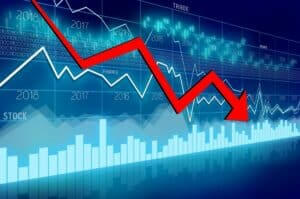On Friday, the price of coffee fell amid growing bean production in India as Starbucks reshapes the country’s food and beverage industry.
Coffee futures for December delivery shed 2.98% to ¢150.23 per pound as markets closed on September 22.
In 2012, John Culver, that time’s president of Starbucks Asia Pacific, identified India as an important emerging market. He believed there was strong potential to change India’s tea-loving culture and shift it toward caffeinated beverages.
Taking notice of the American company’s initial success, the government of India increased its investment in farming Arabica beans. India has increased its yield of Arabica beans from 289,600 metric tons in 2010 to 393,400 metric tons in 2023.
In the 2023 fiscal season, it ranked eighth in the world in coffee bean production and seventh in exports. Purveyors of specialty coffee described India’s Arabica beans as smooth and consumer-friendly.
The International Coffee Organization (ICO) placed India’s beans in the Other Mild Arabica category together with US Arabica beans. Thus, as the demand for India’s production rises, the demand for US Coffee C falls, negatively affecting the latter’s price.
In addition, India is quickly becoming the world’s preferred supplier of robusta coffees. Specialty bean roasters prefer Indian robusta beans because of their mellow flavor without the rubbery aftertaste.
Starbucks Draws Other Coffee Brands to India
Starbucks opened the doors of its flagship store in India on October 19, 2012. Almost 13 years later, the American company now has 360 cafés in the country across 44 cities.
Its success has triggered a chain reaction in which various international specialty coffee brands flocked into India. Thus, the Indian coffee industry has recorded an average growth rate of 15.00% to 20.00% in the past decade.
Canada’s Tim Hortons and London’s Pret Manger are the two most prominent new arrivals in India’s beverage scene. India’s rising caffeinated beverage market has had a compound annual growth rate (CAGR) of almost 6.00% in the last five years.
Local caffeinated beverage chains have also stepped up to compete with international brands. Café Coffee Day leads the local pack with 436 stores, followed by Barista’s 350 stores and Costa Coffee’s 117 stores.











